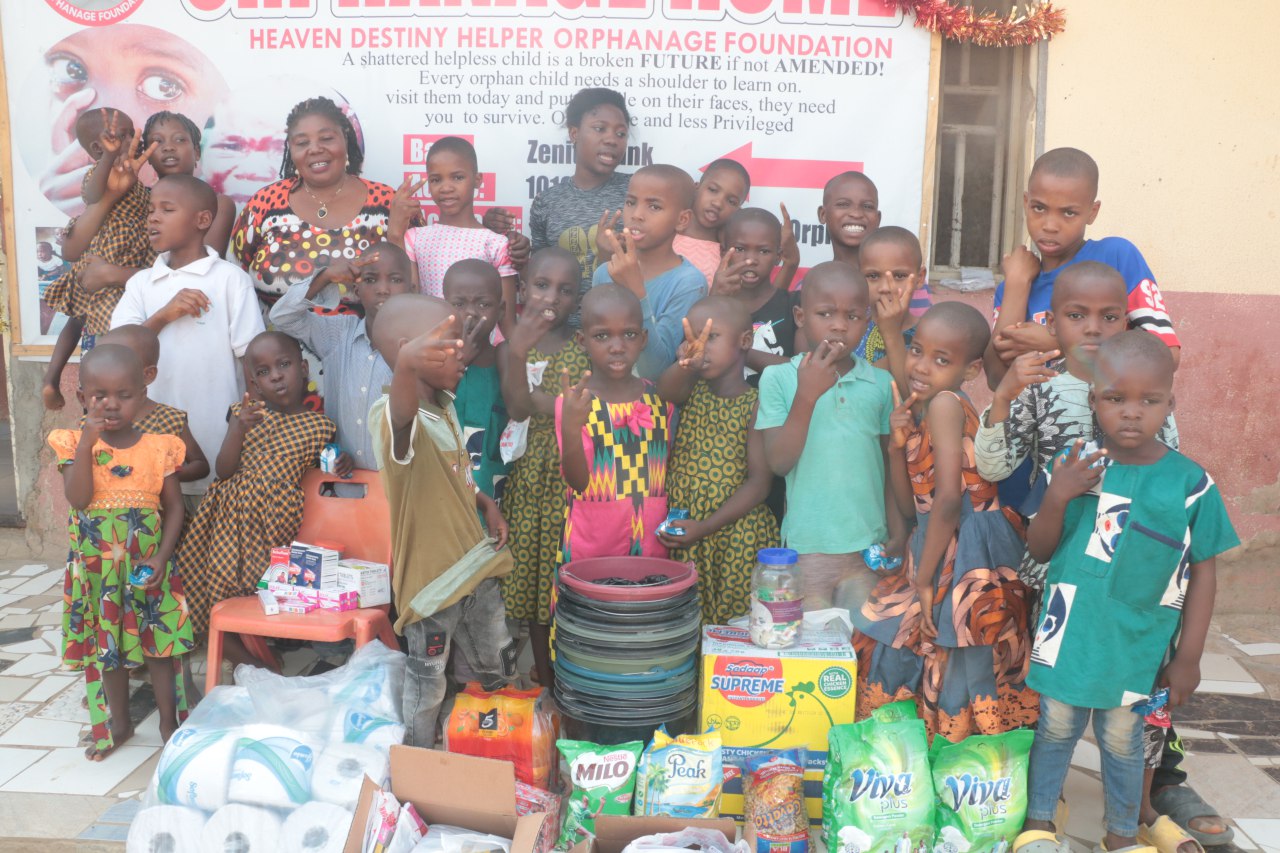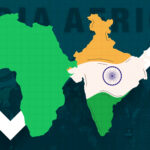In the tranquil neighborhood of Aso Line, Mararaba, Nasarawa State, the Heaven Destiny Helper Orphanage Home stands as a beacon of hope, exuding a warmth and love that envelopes its twenty-eight young souls, each with a unique story of resilience and survival.
Amid global statistics revealing a staggering 143 million children in need, Nigeria grapples with over 17.5 million orphans and vulnerable children, a stark reality that compels individuals like Mrs. Amaka Ane to open their hearts and homes to the underprivileged.
As the National President of the Association of Orphanages and Home Operators in Nigeria (ASOHON), Gabriel Oyediji, underscores, nearly 90 percent of these children find solace in private homes, like the Heaven Destiny Helper orphanage, which Mrs. Amaka founded six years ago, driven by an unwavering passion for nurturing children.
The genesis of Heaven Destiny Helper traces back to Mrs. Amaka’s youthful ardor for childcare, a calling that persisted until she found herself with a family of her own. Faced with the escalating number of abandoned children in her community, she and her husband embarked on a journey of compassion, initially housing the children in their own apartment.
“I started this orphanage because of the passion and love to take care of children since my youth. That passion for taking care of children kept disturbing me until I got married, and when I finally got married, I had to yield to that call, which I see as a service to God and humanity.”
Gesture out of passion
Madam Amaka, who is in her 50s, noted that she and her husband were inspired to found the home in their apartment owing to the increasing number of abandoned children they encountered.
“Most of the children came or were brought here when they were small, either picked on the road or one way or another. For instance, one of them was brought here by 2:am. They knocked at my door. They had a child they saw by the roadside inside a box with a placenta zipped. As God will have it, the infant girl child did not suffocate.”
“They rescued the baby alive and brought it to this home. We quickly dressed the baby and went and registered her with the appropriate authorities. All these children have individual stories of how they found themselves here.”
Caring for these children, however, hasn’t been without its challenges. Mrs. Amaka acknowledges the strains posed by economic hardships, yet her resilience shines through as she recounts how they’ve sustained the orphanage through ventures like their fish farm business.
“How we cater for these children has not been easy, especially in this economy. I thank God and my husband, who has been so supportive in all areas to ensure that most of these children who were picked or brought here as babies are able to eat, wear clothes, and go to school. All of them are in school.”
“We thank God and my husband for their unwavering support in ensuring these children have their basic needs met,” she said, expressing gratitude to the myriad individuals, NGOs, and religious organizations that rally behind their cause.
When this reporter visited the orphanage, a few of the children had departed for extramural classes, preparing for the upcoming West African Examination Council (WAEC) exams.
“Many of them are going to secondary, primary, and nursery schools mixing up with other children which is right. We also have teachers we are paying monthly to teach them as well, especially the little ones,” Mrs. Amaka said
Mrs. Amaka’s vision extends beyond providing shelter; she aspires to nurture confident, skilled individuals who defy societal odds.
However, the road ahead is fraught with obstacles. Oyediji stressed the imperative of appropriate care, noting that institutionalized children are susceptible to rights violations. Despite constitutional provisions stipulating a transition from orphanages at age eighteen, operational challenges persist, leaving many vulnerable.
“I would like to call on the government and well-spirited individuals to assist us so we can keep sustaining these children and keep giving them the best in life, make them feel at home, and take their minds away from any feelings that might trigger their mind at any time. My prayer every day is that these children will make it and be successful in life and also help other children too,” Mrs. Amaka said.
A Beacon of legitimacy
Yet, amidst these complexities, Heaven Destiny Helper stands as a beacon of legitimacy and compassion. Registered and recognized by regulatory bodies and government agencies, Mrs. Amaka ensures meticulous adherence to protocols, affirming that all children under her care are duly registered and educated.
“This orphanage home is well recognized by the government and nobody comes to trouble us for operating illegally. The National Agency for Prohibition and Trafficking in Person or NAPTIP, Social Welfare, Department of State Services, and other security agencies do come here for a visit.”
Even amid the tumult of the pandemic, governmental agencies extended support, underscoring the collaborative effort required to safeguard these vulnerable lives.
As Mrs. Amaka pleads for governmental support, her words encapsulate the essence of Heaven Destiny Helper—a sanctuary born from love, sustained by community, and dedicated to empowering Nigeria’s most vulnerable souls.






